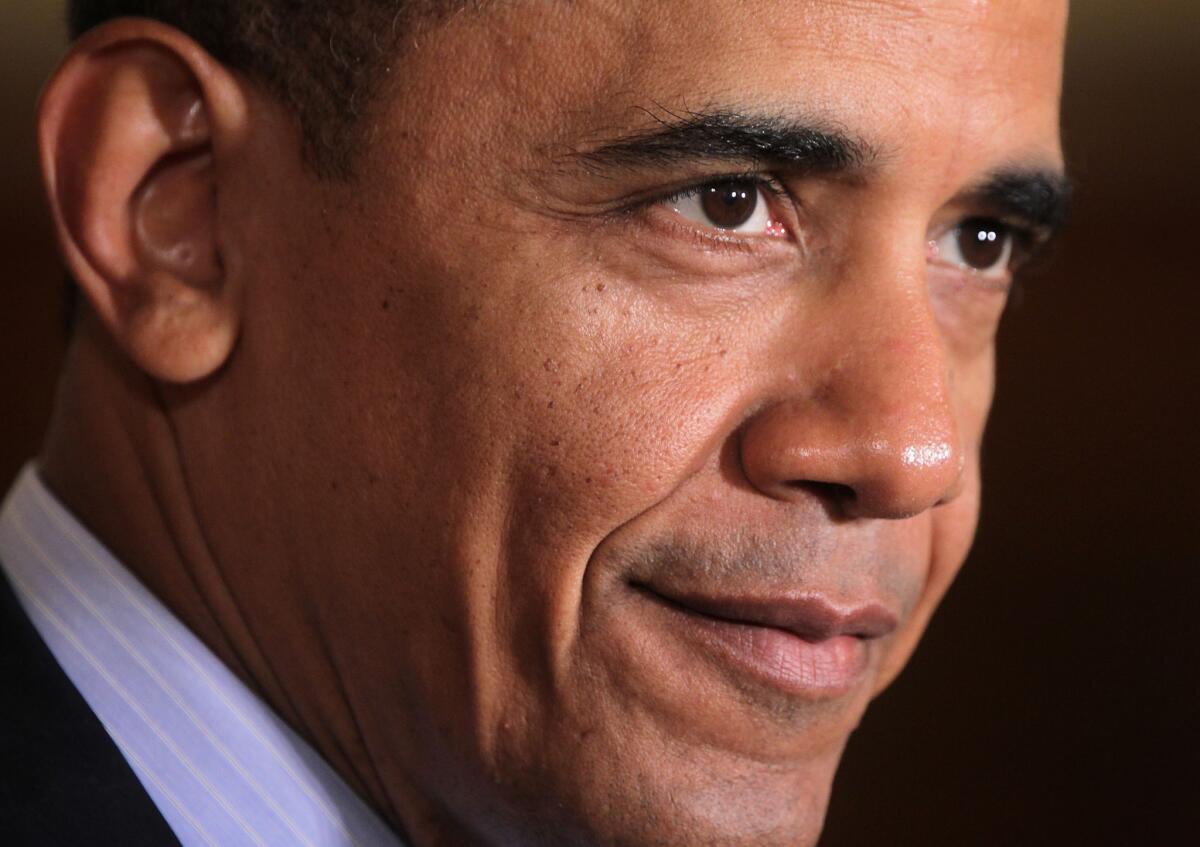Washington’s dark secrets

- Share via
President Obama’s response to the troubling news of indiscriminate government collection of communication information was meant to be reassuring: The NSA is operating under supervision by all three branches of government, he assured us.
Even if this were true — and it is not — this purported defense should make us more nervous, not less, because it suggests that Washington has become entirely comfortable with keeping basic information from the American public about what powers of surveillance the government claims it can lawfully use.
The secret court that apparently authorized this program operates nothing like the judicial branch contemplated by the Constitution as a check on abuses of governmental power and a neutral evaluator of whether governmental conduct complies with the Constitution. Its decisions are made in secret and not generally subject to appellate review. And there is no role built into the system for someone to counter the government’s arguments.
POLL: Should Edward Snowden go to jail?
As for the legislative branch, it’s unclear how many in Congress understood the situation. In 2012, Sens. Ron Wyden (D-Ore.) and Mark Udall (D-Colo.) wrote to Atty. Gen. Eric H. Holder Jr. about “the dangers of relying on secret interpretations” of the Patriot Act. They warned that, because the documents outlining the administration’s interpretations of the law were so highly classified, “we can state with confidence that most of our colleagues in the House and Senate are unfamiliar with these documents, and that many of them would be surprised and angry to learn how the Patriot Act has been interpreted in secret.”
Moreover, because of rules governing classified information, members of Congress were strictly limited in what they could say publicly. Wyden and Udall, both members of the Senate Select Committee on Intelligence, grew increasingly worried about the government’s interpretation and application of Section 215 of the Patriot Act, which greatly expanded the government’s ability to collect information, but they could do no more than publicly hint at their concerns. As a result, their warnings went largely ignored by the public, which couldn’t decipher them.
This gets to the broader issue of what the public deserves to know. In their letter to Holder, the senators stated:
“We believe most Americans would be stunned to learn the details of how these secret court opinions have interpreted Section 215 of the Patriot Act. As we see it, there is now a significant gap between what most Americans think the law allows and what the government secretly claims the law allows. This is a problem, because it is impossible to have an informed public debate about what the law should say when the public doesn’t know what its government thinks the law says.”
They concluded that “Americans expect their government to operate within the boundaries of publicly understood law; as voters they have a need and a right to know how the law is being interpreted, so they can ratify or reject decisions made on their behalf.”
Obama has worked to keep the public in the dark about his administration’s interpretation of the Patriot Act. His Department of Justice has moved to dismiss lawsuits brought by the New York Times and the American Civil Liberties Union to obtain information about, among other things, how the government interprets the Patriot Act, usually claiming that secrecy is necessary to protect intelligence sources and methods and prevent our enemies from learning about them.
For democracy to work, citizens must be able to question how much secrecy is consistent with democratic values. People need to know what their government actually claims authority to do. Though actual sources and methods used in any particular investigation may need to be kept secret, it is quite another thing to suggest that the very laws under which the government operates can be withheld from the public.
The debate we are now having about government surveillance — to ensure that the government is complying with publicly enacted laws and acting in a manner consistent with American values — has become possible only because of “unauthorized disclosures” to the media. Instead of calling for an investigation of whistle-blowers, we should be asking ask why government officials were not the ones to disclose freely how they interpreted and applied the Patriot Act.
It is scandalous that the president didn’t see the need for the debate earlier and bring it to the public’s attention himself. If the president truly welcomes this debate about surveillance, as he has now indicated, he will make sure Americans have the information they need to meaningfully engage in the discussion. He should start by releasing the government’s secret interpretation of Section 215 of the Patriot Act.
Hector Villagra is executive director of the ACLU of Southern California.
More to Read
A cure for the common opinion
Get thought-provoking perspectives with our weekly newsletter.
You may occasionally receive promotional content from the Los Angeles Times.






